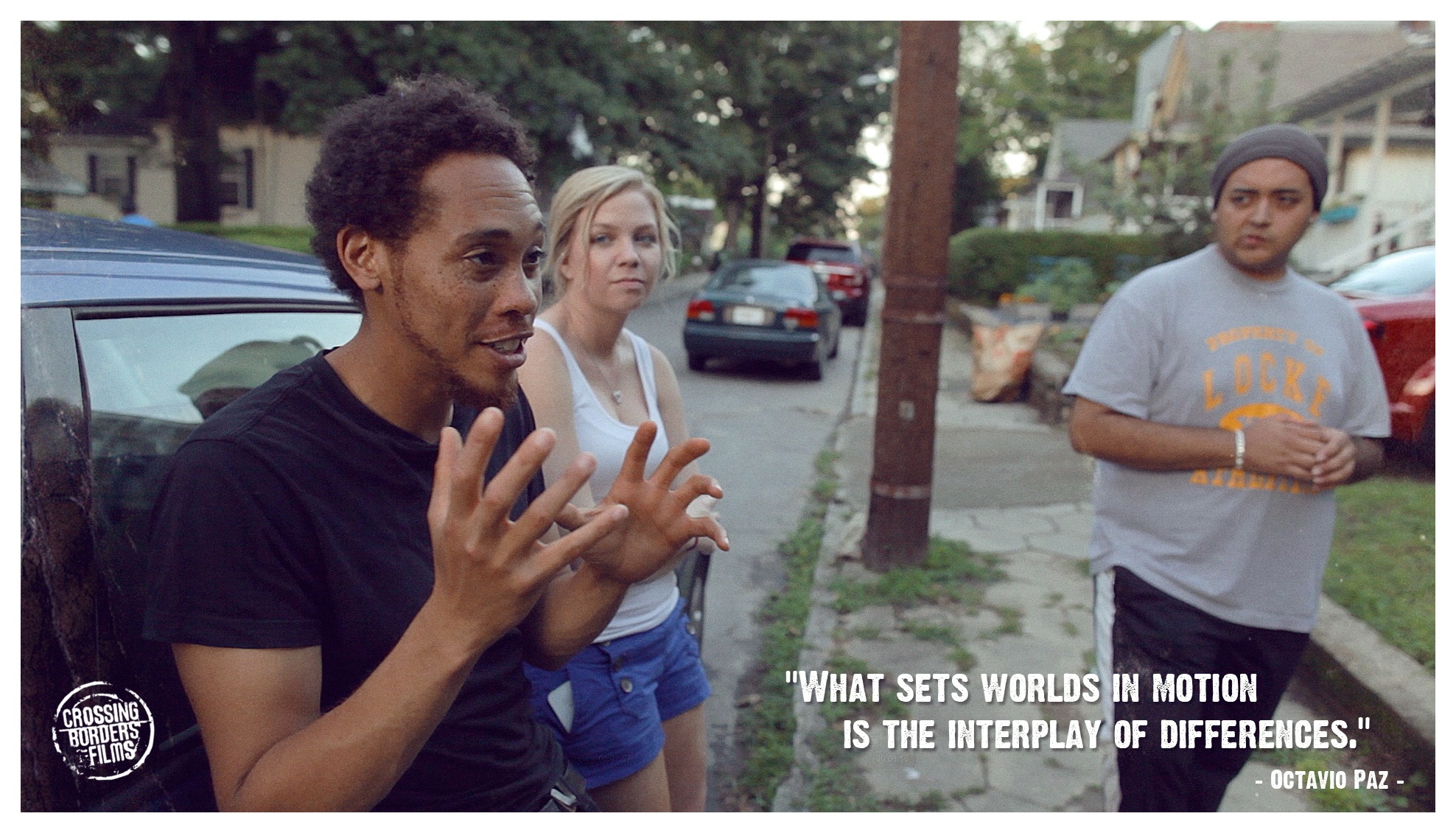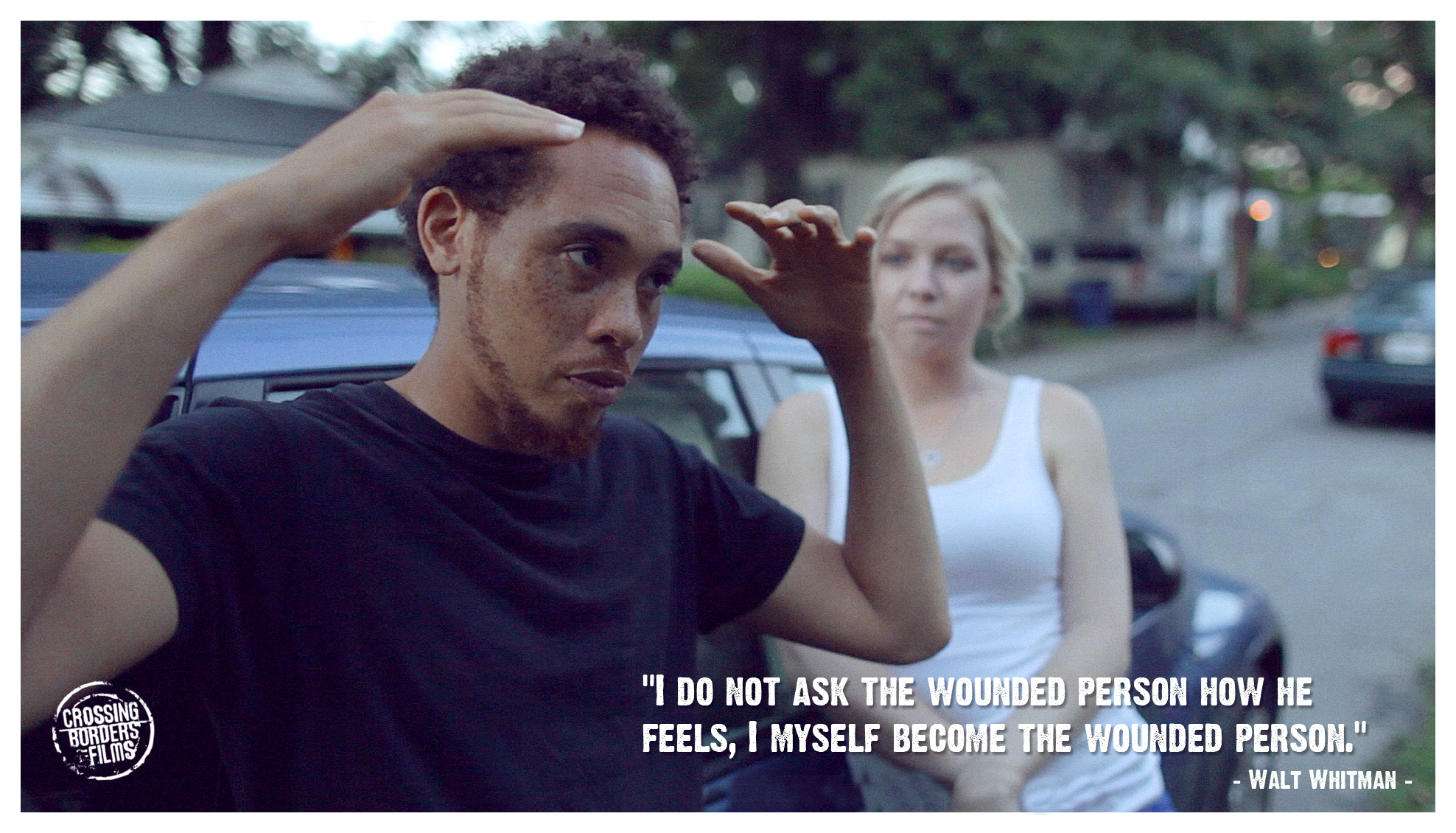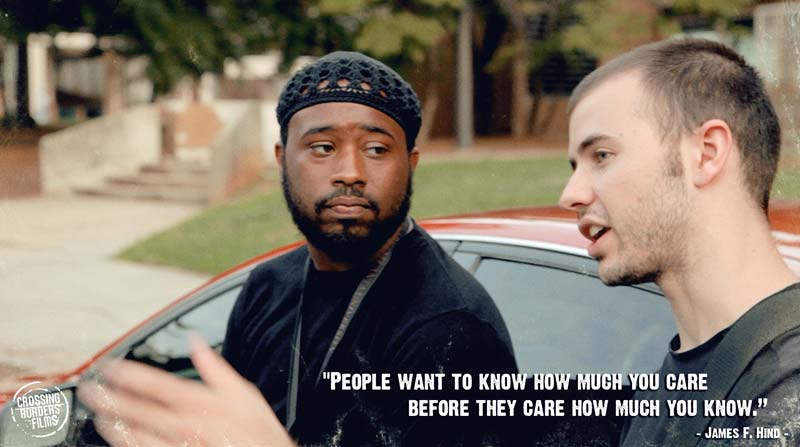
The heightened interracial tensions within US society are painful reminders that we cannot escape the complexities of our time and world. As educators, we have an obligation to prepare our students better for their personal and professional lives by supporting them to develop key leadership and communication skills, such as: critical thinking, cross-cultural openness, social awareness, welcoming diverse perspectives, intercultural empathy, and enhanced civic engagement, among others.
In response to the critical need for institutions of higher learning to create inclusive educational environments, Crossing Borders Education (CBE) developed an Educational Approach around creative tools that foster a Culture of Dialogue on campuses, while simultaneously upholding values of academic freedom and freedom of expression. Our three feature films, 40+ short videos, online toolkits, facilitator manuals and creative resources offer educational leadership, faculty and staff an effective array of engaging resources to create experiential learning opportunities and train students’ social, communication and leadership skills in the process. All resources are designed flexible and can be easily adapted to the specific needs of diverse institutions.
CBE resources are excellent ways for instructors to discuss sensitive topics in formats that meet students where they are while assisting them in developing essential skills needed to engage in meaningful dialogue.
Colette Cummings, Ed.D., Associate Dean, Multicultural Center,
Webster University, St.Louis, MO
Supporting intergroup dialogue
Our resources are carefully crafted to support administrators, faculty and staff in the following efforts:
- To support constructive intercultural and interracial communication on campus.
- To support the inclusion of intercultural sessions into the general education curriculum, helping students develop key social and leadership skills.
- To help overcome the separation between students of different nationalities, ethnicities and socio-economic backgrounds and create meaningful peer-to-peer interactions between groups.
- To support faculty and staff in the creation of classroom activities where students can address intercultural and diversity issues in safe and constructive ways.
- To develop a strategy and road map for curricular and extra-curricular activities that engage, challenge and support the whole student body to actively grow social skills that grow a Culture of Dialogue on campus.
Resources that engage students
The following resources show how we meet the objectives above with tools that engage students personally, emotionally and intellectually.
1. Short Videos
Short videos such as Why Explore Diversity? below, and creative resources such as our Quotecards help students to get a glimpse of the potentials and perspective-enhancing impact of intercultural experiences on campus and abroad.
More than 40 short videos such as On Breaking Down Barriers below and our three feature films, provide students with a blueprint of honest, frank and constructive dialogues.
2. Educational Resources
Short activities such as On Stereotypes support faculty and staff with practical and engaging tools for the classroom. Pages such as Campus Internationalization Resources support educational leadership in developing a road map towards strengthened intercultural interactions and skills on campus. Educational resources such as our Diversity Curriculum Toolkit and its facilitator manuals are designed to support leadership, faculty and staff to include intercultural sessions into curricula.
3. Intercultural Films
Our engaging, character driven, emotional documentaries like American Textures support institutions to host powerful screening discussion events that can reach the wider campus community, connect diverse student groups and interlink diverse subject areas.
The CBE toolkits are vital resources to ensure global competency, international awareness and the fundamental necessity of acceptance.Lauren Norville, Assistant Director, Office of International Services, Teachers College, Columbia University
Linking Intercultural Learning and Diversity Training
There are a variety of potentials when tackling diversity issues through the lens of intercultural learning, such as:
- De-escalating heated campus rhetoric and focusing instead on “allyship” by drawing upon conflict mediation strategies.
- Touching students’ desire to live their full potential by using the learning channel of personal growth and self awareness.
- Meeting students where they are at in their different levels of social awareness and communication skills and supporting/challenging them to move beyond their comfort zones.
- Inspiring and challenging students’ openness to learn about diversity and social justice issues by supporting them to enhance their social skills.
One of the challenges will be to enhance participant’s awareness that these tools train communication skills in order to enable honest dialogue around social justice issues, but are not yet changes of social injustices themselves. Interracial dialogue is a strategy to increase social awareness, which is a precondition to civic engagement and social change.

Integrating with the curriculum
Our tools are designed flexibly and can be integrated into the curriculum in many possible ways, such as:
- First Year Seminars
- Global Citizenship Programmes
- Teacher Trainings
- Social Skills & Leadership Trainings
- High-Impact Educational Practices such as: Common Intellectual Experiences, Learning Communities, Collaborative Assignments, Service Learning, etc.
- Orientations and Trainings: Study Abroad, International Student Services, Work Placement Preparation, etc.
Suggested Timing for Resource Usage
| When: | What package component: |
| Pre-Semester | Consultancy sessions to identify the specific needs of specific departments and the institution as a whole. Facilitator Trainings for faculty and staff focusing on resources introduction and intercultural facilitation skills. |
| Semester 1 | Adapting three to five Intercultural Sessions of the CBE Toolkits to specific classwork. |
| Semester 2 | Facilitating three Intercultural Events (Film Screening and Student Discussion) with the CBE Film Trilogy. |
| Semester 1-6 | Using activities of the CBE Toolkits for informal events in Student Life to support students to move beyond their comfort zones and interact with each other across cultural differences. |
| Semester 2-5 | Adapting sessions of CBE toolkits to Orientation Sessions for diversity trainings, social justice programs, study abroad, international student programs, internships and other. Using the Study Abroad Toolkit in Re-entry Sessions for students returning from study abroad and internship programs. |
| Semester 6 (or later) | Using the CBE Film Trilogy for Integration Sessions with students, reflecting on the intercultural experiences they had on campus throughout their studies. Students explore how they can use their learning experiences best to move forward into their professional lives. (Note: senior students could further deepen their learning by becoming small group facilitators for students of the 1st and 2nd Semesters) |

Short Term Travel Programs
In addition to our engaging films, toolkits and creative resources, we are organising unique cross-cultural short term programs to Morocco. At a time of increased islamophobia, it creates a truly profound impact for students of diverse ethnic and socio-economic backgrounds to travel together in North Africa on our Morocco Exchange. Since 2004, we have organised well over 650 successful and safe immersion programs for more than 10,000 US college students and we would be delighted to custom tailor one for your institution.
After this program I feel that in order to truly understand any culture one must experience it first hand.Katie Kollar, Student, New York University


